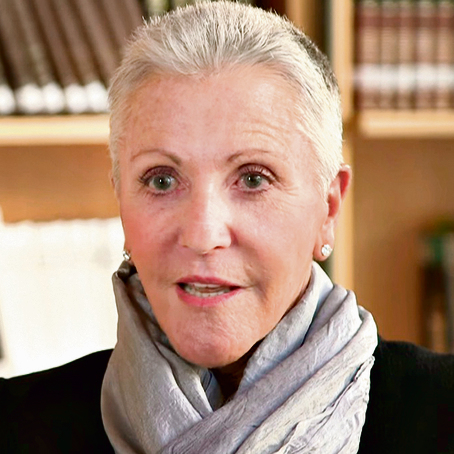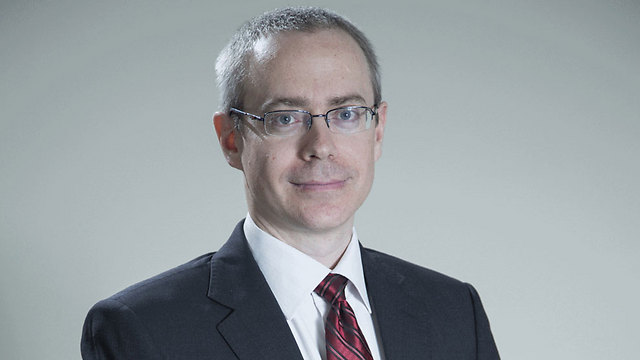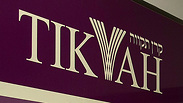

The right-wing response to the New Israel Fund
Huge donations, aiding organizations with a distinct agenda, an attempt to change the public discourse in Israel with foreign money: The Tikvah Fund, which promotes a US Republican worldview through research institutions, seminars and media outlets with a clear right-wing ideology, is being accused by Religious Zionism circles of turning a cold shoulder to the disadvantaged, underrepresenting women and deepening the rift among the Jewish people.
This time, however, it’s not the NIF, but rather the Tikvah Fund, which has been operating quietly and thoroughly in recent years to spread a libertarian worldview and values, straight from the United States. What does that mean? Broadly, that citizens take care of themselves, as opposed to a welfare state, where the government cares for the citizens.
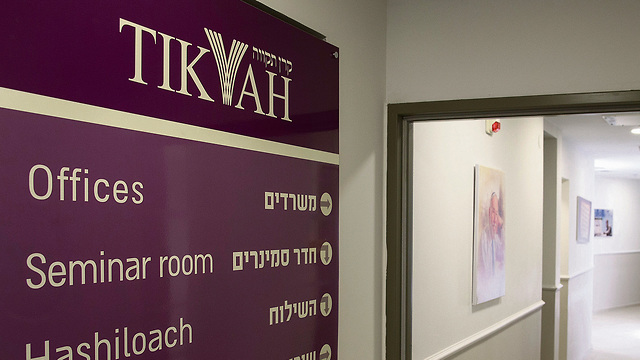
“I think the New Israel Fund is less dangerous to Israeli society and solidarity than the Tikvah Fund. It’s a harsh statement, but I do believe that the New Israel Fund helps bring the moderate voices in society closer. The Tikvah Fund, on the other hand, deepens the divide, thereby weakening solidarity, which is hard to come by as it is in Israel today.”
The speaker isn’t your classic leftist, but a skullcap-wearing settler from Gush Etzion, poet Eliaz Cohen, who is speaking out against the Tikvah Fund and its various organs.
“The Tikvah Fund promotes turning Israel into a twin of the American capitalist model,” he says. “It presumes to connect this model with some claim that this is what Jewish sources and thought call for. This is damage that will be very difficult to repair.”
The humanist stream in Religious Zionism in general is unhappy with the Tikvah Fund’s success in impacting Israeli discourse, a success which is apparent both in politics and in the views expressed by a growing segment of the national-religious sector. Against the disabled persons’ struggle, against stipends (welfare, unemployment, child payments, etc.) and in favor of privatizing every imaginable service.
“The changing discourse following the Tikvah Fund’s activity, especially in Religious Zionism circles, keeps me up at night,” says Ilay Ofran, the rabbi of the religious Qevuzat Yavneh (Yavneh Group). “The concept coming from this direction is one of dismantling anything that remotely smells of solidarity, anything with the slightest shade of brotherhood. The concept is ‘we’ll take care of ourselves.’ We—the rich white religious people. We’d be willing to give alms to others in our own free time on a voluntary basis.
“This contradicts the concept of us as a society helping the weak and the less able. We mustn’t get to that point. I’m afraid that this cultural language will turn us into a cruel society with no compassion or social obligation. These people talk a lot about the concept of ‘freedom.’ I believe in responsibility before freedom.”
Zalman’s bequest
The Tikvah Fund was founded in the United States in the 1990s and terms itself as “a philanthropic foundation and ideas institution” whose goal, according to the fund’s website, is to “(support) the intellectual, religious, and political leaders of the Jewish people and the Jewish state.”
This goal is achieved through “running and investing in a wide range of initiatives in Israel, the United States, and around the world, including educational programs, publications, and fellowships” and by “bringing Jewish thinking and leaders into conversation with Western political, moral, and economic thought.”
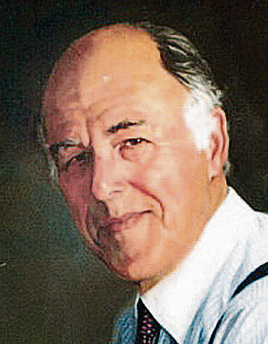
According to its tax disclosures to the US authorities in 2015, the Fund had assets at a staggering total of around $150 million. The money comes from the estate of late Jewish billionaire Zalman Bernstein, whose widow Mem is on the fund’s board. The family’s name may not be as famous as that of other noted philanthropists, but their philanthropic works are far from unknown, including organizations such as the Avi Chai Foundation, established back in 1984, which is led by Mem Bernstein and operates under the slogan “Committed to the perpetuation of the Jewish people, Judaism, and the centrality of the State of Israel to the Jewish people.”
The Tikvah Fund is currently headed by American businessman and philanthropist Roger Hertog, who donated to the Republican Party in the past. The director is Eric Cohen, and another senior figure at the fund is Moshe Koppel, a computer science professor at Bar-Ilan University. The coordinator in Israel since 2016 is Amiad Cohen, a resident of the settlement of Eli, who told me he was appointed after taking some of the fund’s advanced courses.
If such funds are usually seen as ATMs for various Israeli organizations, without a clear agenda, the Tikvah Fund and the organizations it chooses to assist are backed by a vision, a strategy and an orderly plan: To have ideas and worldviews associated with the American Republican Party, particularly its more economically right-wing factions, take root in the Israeli public. “Tikvah is politically Zionist, economically free-market oriented, (and) culturally traditional,” the website declares.
After a few years of activity, and some $80 million dollars disbursed, the plan seems to be working well, with terms such as personal liberty, conservatism and free market appearing more and more in a changing discourse. It happens largely thanks to entities supported by the fund, including the former right-wing think-tank and current academic center Shalem, the Kohelet Policy Forum, the Mida website, the Jewish Statesmanship Center and the HaShiloach and Tzarich Iyun magazines.
Operating alongside these, as can be attested by articles and editorials that seem to have been brewed in the fund’s ideological laboratory, are programs through which an alternative future leadership is built: Rabbis, public servants, media professionals. These programs operate in partnership with central institutions such as the Likud party. Recently, some of the employees of the Makor Rishon newspaper have found out that attending seminars held by the fund has become mandatory at their workplace.
“The question is how aware students are that there is such a thing as a conservative-liberal worldview,” explains Prime Minister Benjamin Netanyahu’s former media advisor, Dr. Ran Baratz, who worked for the fund and is considered one of the people most identified with its activities in Israel. “To be an intellectual is not just to quote Foucault and Rawls. There are other important, brave ideas one must know, and I think we’re succeeding on that front.”
Led by religious men
The Fund’s extensive activity can be divided into three fields: Education, media, and research or theory. The major research organ supported by the fund in recent years is the Kohelet Policy Forum, which has received more than $1 million from Tikvah since its founding five years ago. The close ties between the forum and the fund can also be deduced from the fact that the chairman of the forum is Prof. Koppel, a member of the Tikvah Fund board in the US, Prof. Koppel.He works alongside many senior figures in Israeli public life, such as Likud member and former Knesset Member and Minister Michael Eitan, former Cabinet Secretary Zvi Hauser—both of whom carry the title of “senior fellow” at the forum, and Israel’s former chief economist, Dr. Michael Sarel, who is head of the organization’s Economics Division.
In the five years since the Kohelet Forum has registered as an NGO, researchers on its behalf have produced dozens of position papers on a variety of topics, such as government ownership of government corporation, the government and legal counseling, excess higher education in Israel, an analysis of the cooperative transportation policy in Israel, governability and appointments in Israel and more.
Members of the forum also make sure to be present at debates and places where decisions are actually made, and its representatives are seen time and again at various Knesset discussions, mainly on economic issues.
Dr. Sarel, for instance, appeared as a Kohelet representative at a Knesset hearing in the summer of 2016, about the freedom of occupation in Israel. The hearing was initiated by “The Competition Movement,” formed that year to promote an unsurprisingly free-market worldview. This movement was started by students from the Shalem Academic Center, an incarnation of the “Shalem Center” research and education institute, which until recently was considered one of the most influential with the government among independent research institutes.
Among the center’s past fellows are former Minister of Defense Moshe Ya’alon and Jewish Agency Chairman Nathan Sharansky, a former minister too.
In recent years, since the Higher Education Council granted a permit for undergraduate studies, Shalem has changed its colors somewhat and is better known as an academic learning institution. In the past, the spotlight was turned on donations to the Shalem Institute from billionaire businessmen Sheldon Adelson and Ron Lauder, but we have learned that since 2001 the Tikvah Fund has donated an immense amount to the institute, more than $70 million. Recently, the fund announced that it would give the institute $3.25 million dollars per year over the next five years.
“The Shalem Academic Center is an independent institution, and no representative of the Tikvah Fund sits on its board,” says Amiad Cohen, director of the Tikvah Fund in Israel.
Another entity that has received handsome support from the fund is the Institute for Zionist Strategies, headed by Dr. Yoaz Hendel. This institute’s offices are next door to the Kohelet Forum’s.
“We received a donation from them in the past and, unfortunately, they didn’t continue,” Hendel tells us. “I think this is an important revolution, where the fund with its large budgets has helped create a basis for intellectual thought for the conservative world and the national camp in general. I remember times when there was no one to help in this regard and against prevailing thought, and despite what some people say, I think they’re pretty pluralistic and open to discussion.”
In 2012, to help the ideas promoted by the fund reach the public, Ran Baratz started the Mida website, which has since become very popular in right-wing circles, particularly its religious-Zionist sectors. According to the website, Mida is an initiative of the El HaPrat (“To the individual”) NGO, whose full name also includes the mission statement “for liberties and civic responsibility.” This organization received $1.5 million from the Tikvah Fund between 2012-2015, and the values promoted on the site are highly similar to those the Tikvah fund seeks to promote.
“In terms of values, we are ‘classic liberals’ or ‘conservative liberals,’ states the About page on the website, whose offices are located next to those of the Kohelet Forum in Jerusalem. “We view personal liberties as a uniquely Western political achievement, one purchased through personal responsibility and civic engagement. At the same time, we recognize that liberty on its own is not enough, and it is supported by identity and social institutions, chief among which are nationality and religion.”
On the Mida website, one can find a plethora of articles and opinion pieces supporting Prime Minister Netanyahu and right-wing content in general, and a lot of criticism against the anti-corruption protests, the Histadrut labor federation, etc.
Past and present writers include journalist from Makor Rishon, as well as Erez Tadmor, a co-founder of the Im Tirzu organization (known for its vicious campaigns against the NIF) and a radio host on the right-wing Galei Israel channel. The Editor-in-Chief is Ziv Maor, who recently informed his Facebook followers excitedly that his first article for HaShiloach magazine, the Tikvah Fund’s prized publication, had been published.
HaShiloach was launched in late 2016, and received instant interest due to an article by Justice Minister Ayelet Shaked titled “Tracks to Governability.” “The Knesset seeks to legislate us to death, and the Court deviates to roles not meant for it,” Shaked wrote there. “The conduct of some of the arms of government poses a growing threat to our freedoms and the governability of our constituents. We must return the trains of governability to their proper tracks – stemming from Israel’s definition as Jewish and Democratic… Governability, individual freedoms, a free market.”
The people behind HaShiloach claim to run a pluralistic publication. Indeed, among the many articles published there is one by Yesh Atid leader Yair Lapid, but most of the ideas given voice on its pages are in line with the Tikvah Fund’s worldview. What you will barely find there are female voices, particularly feminist ones.
“The Tikvah Fund is a worthy intellectual voice that elevates the level of political discourse in Israel,” says Dr. Channa Pinchasi of the Shalom Hartman Institute. “But it’s important to note that almost every edition of HaShiloach has attacks on feminism, intended to limit and restrict that voice in society.
“On the other hand, what it doesn’t have is women writing. When they are criticized, the response is ‘we try really hard to have women, but have a hard time finding women to write’ or ‘women tend not to write about these topics.’ The idea that they will find female voices while ignoring barriers is part of a problematic agenda. The conservative assumption that if a woman just works hard enough and excels she’ll succeed weakens the chance of hearing women’s voices in the intellectual, political, and leadership spheres. This is true not only for women, but for all the ‘others’ on the margins. Most of those leading the Tikvah Fund’s activities are religious men. This is no coincidence.”
Recently the fund has been supporting a new magazine called Tzarikh Iyun (“Study Needed”), which is edited by Rabbi Yehoshua Pfeffer, head of the Haredi Israel Division in the Tikvah Fund. Its existence points to an attempt to appeal to new audiences, which are not part of classical religious Zionism.
Impacting reality through massive donations
The third aspect in the Tikvah Fund’s activity is the educational one, which includes vast donations to various endeavors. For instance, the Jewish. Statesmanship Center in Memory of Ido Zoldan, which was created in 2007 by Dr. Assaf Malach, chairman of the civics subject committee at the Ministry of Education since 2015.The college’s stated mission is to train its students for key public position. Its main source of income: Millions of shekels pumped in by an American friends society that is consistently supported by the Tikvah Fund.
The college holds a two-semester course in identity and policy and operates a variety of courses and research centers seeking to influence fields such as international relations, civics and history, from a national-Jewish point of view.
Among the senior lecturers at the college are Ran Baratz, Dror Eydar (senior opinion writer for Israel Hayom, Sheldon Adelson’s pro-Netanyahu free daily) and the head of the legal department at the Kohelet Forum, Dr. Aviad Bakshi.
The list of the college’s alumni, published on the website, shows well how reality can be impacted through massive donations. The list is full of current or past office holders at government ministries and public authorities, legal professionals and media personalities.
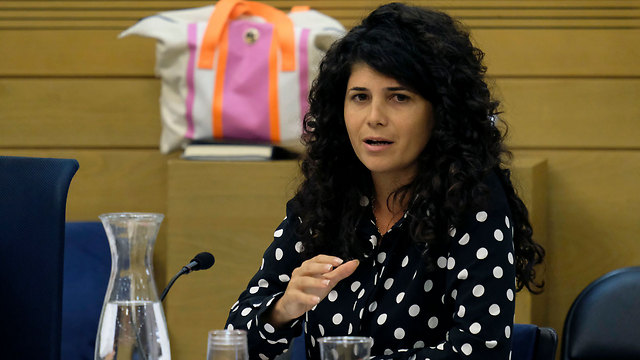
The most famous graduate is Knesset Member Sharren Haskel (Likud), who recently made headlines when she opposed the Supermarkets Law in defiance of the government’s position. Haskel, who is identified with some of the fund’s central ideas—mainly individual liberties and laissez-faire economics—has close ties to the Kohelet Forum. In an interview, she mentioned that a forum position paper regarding the activities of UNRWA helped her decide to start the UNRWA Reform Lobby at the Knesset.
Another college graduate is Gil Berringer, one of Minister Shaked’s close advisors.
Other educational institutions aided by the fund include pre-military prep-school Ein-Prath ($1.5 million, the Herzog Academic College in the settlement of Alon Shvut and larger institutions such as Bar-Ilan University and the Technion. In recent years, it seems, the fund prefers to hold most of the courses itself, through educational seminars.
The main program is Amitei Tikvah, “Hope Fellows,” held in New York and intended for “exceptional individuals who are interested in the political, religious, and intellectual future of the Jewish people,” according to the Tikvah Fund website.
This is a select program in which the fund locates what it refers to as “people with potential for great achievement”—like Tadmor, a graduate of the program—and gives them lessons in warfare and statecraft, economics and public policy, history and Jewish thought.
Other seminars, held in Israel or in New York, last about two weeks and participants are generally paid a stipend to cover their expenses.
“Between shopping and stunting around the sights of this amazing city, and the great food, I took a two-week course on the philosophical and practical tension between tradition and freedom,” wrote journalist Emily Amrousi. “I must thank the Tikvah Fund for hosting me and recommend that you try to get into their courses, which include discussion groups and a brain massage like you haven’t had in a while… and there’s a nice stipend, too.”
Recently, the fund held a leadership workshop in conjunction with the Likud and Bayit Yehudi parties and another workshop, on economics, for Makor Rishon employees. Another seminar, titled “Exodus,” “seeks to expose the finest students to the world of conservative thought and classic liberal philosophy.” The lecturers include Alon Tuval, director of the Tacharut movement.
Our Tea Party
A significant part of the criticism against the fund’s actions actually comes from within the Religious Zionism movement, mostly against its worldview’s rejection of values such as solidarity and aid for the disadvantaged, which should form the basis for an egalitarian society.“The Republican values promoted by the fund truly undermine the Zionist effort to build a nation-state for the Jewish people,” says Tehila Friedman, chairwoman of Ne’emanei Torah V’Avodah (“Torah and Labor Faithful”) movement. “Nationality is built on solidarity. Opposing the expansion of the health basket, supporting the privatization of education, gloating at the closure of factories in the periphery, delegitimizing the disabled persons’ campaign—this disintegrates solidarity. At the end of the day, what we have here is legitimization for alienation and selfishness.”
In January, for instance, Hillel Gershuni published in Mida an article calling to repeal the health basket, the allocation for purchasing life-saving and enhancing drugs within the national health budget, and to reimburse the funds saved to the public. Gershuni said he was not opposed to social solidarity, but believed this way each person could choose whether to help the less fortunate, without government involvement, which he viewed as illegitimate.
The article was met with widespread criticism, as was an article by another columnist associated with the Tikvah Fund principles, who attacked the disabled protestors, accusing them of “taking charity by force.”
Dr. Maya Haber, who specializes in Israeli and Jewish American relations, criticizes the hypocrisy of the right-wing camp which constantly attacks foreign funding of third-sector organizations, while being itself fed on foreign funding.
“The irony is that while the right-wing screams murder about the impact of foreign funds and promotes laws to require the disclosure of support by a foreign government entity, it is itself funded in vast sums by American Republicans who openly seek to change the political landscape in Israel.”
Rami Hod, executive director of the Berl Katznelson Educational Center and the Social Economic Academy, adds: “Since the social justice protest of 2011, the economic right-wing has realized that it has no true support in the public opinion in Israel, and that most of the public believes in social solidarity and in the government’s responsibility to the citizens. This is very annoying to conservative donors and thinkers in Israel and the United States, whose main project in the past 20 years has been to turn Israel into a branch of American capitalism and to dismantle all traces of government involvement.
“Organizations like the Mida website, HaShiloach magazine and the Kohelet Forum were all established to fight against what they view as the takeover by us social progressives of the public discourse. While most of the Israeli public supports social justice campaigns, these organizations seek to introduce American Tea Party arguments, which are completely alien to the Zionist ethos.”
Ran Baratz, who wishes to clarify that he does not officially represent the fund, suggests that we view its activities in a completely different light. “The fund is full of people with a great love for Israel, who think that in some areas of policy, the discourse in Israel needs to become more diverse,” he says. “We mean that there is no proper debate and representation in Israel of the side that can be termed economically conservative, realism and security, and a better understanding of the free market and economics. Since they believe that these things are very important in creating the correct policy that will benefit Israel, they want to bring those ideas here. This is mainly a pedagogic mission.
“Calling these ideas ‘the Republican Party’ is wrong. The correct term would be the founding ideas of the United States. Classic Western liberalism. At seminars for students which I started along with the Tikvah Fund, I taught thinkers who have almost no voice in Israeli academia, and who are the basis of modern Western thought.”
Baratz claims that the comparisons to the NIS are misplaced. “We are only in the arena of ideas that are important to the debate and to policy in Israel, and that’s perfectly fine. You won’t find (us doing) what the New Israel Fund does, which is to petition the courts and join with political parties. And if they go in that direction, I won’t be there.”
Tikvah Fund: No specific message promoted
The Tikvah Fund offered the following comment to this report: “Alongside the support for our academic center, most of the Tikvah Fund’s budget is allocated to the operation of our academic programs and to the production of our publications. In the past, we have supported a variety of programs at other institutions, to promote the study of important ideas, and by no means to promote any ‘specific message’.
“Several years ago, we decided to establish our own learning programs in Jerusalem and to become an independent intellectual center and think-tank. Accordingly, the external grants we currently give are very low, aside from the support for the Shalem Center.
“We teach a wide variety of economic thinkers at our courses, from the left to the right. We wish for our students to appreciate the full spectrum of economic thought, although we find free-market concepts to usually be the most logical. Our values are clear: Hire the best lecturers, pick the best students, and publish the best writers. In fact, many of the leading voices at Tikvah are those of women, but the only thing that matters to us is excellence, not gender.
“The Tikvah Fund provides an annual support grant to the Mida website, which is owned by a completely separate non-profit organization than the Tikvah Fund. The editors and writers of Mida enjoy complete editorial freedom. We support Mida because we believe they publish important articles that deserve a platform.
“The Tikvah Fund believes in the power of ideas, and believes that Israeli society, and the various sectors within it, will benefit from the enrichment of the public discourse and the presentation of new ideas. This is certainly true in the field of economics, where the Tikvah Fund is attempting to enrich Israeli discourse with serious pro-free-market thinking. It seems that we are succeeding in our efforts and the discourse is slowly changing.
“We believe that economic freedom and social solidarity are consistent with one another. Only a free society creates the wealth, the entrepreneurship and the opportunities that lift the poor from poverty and raise the wretched from the dirt. Any serious person should commend a deep discussion on the question of whether a social safety net, which we see as vital, can be created without suffocating the economy with excessive taxation that inhibits productivity and with excessive, restrictive regulation, and without encouraging a culture of personal and family irresponsibility. This is a complex challenge, and simplistic answers are unbecoming of it.”














